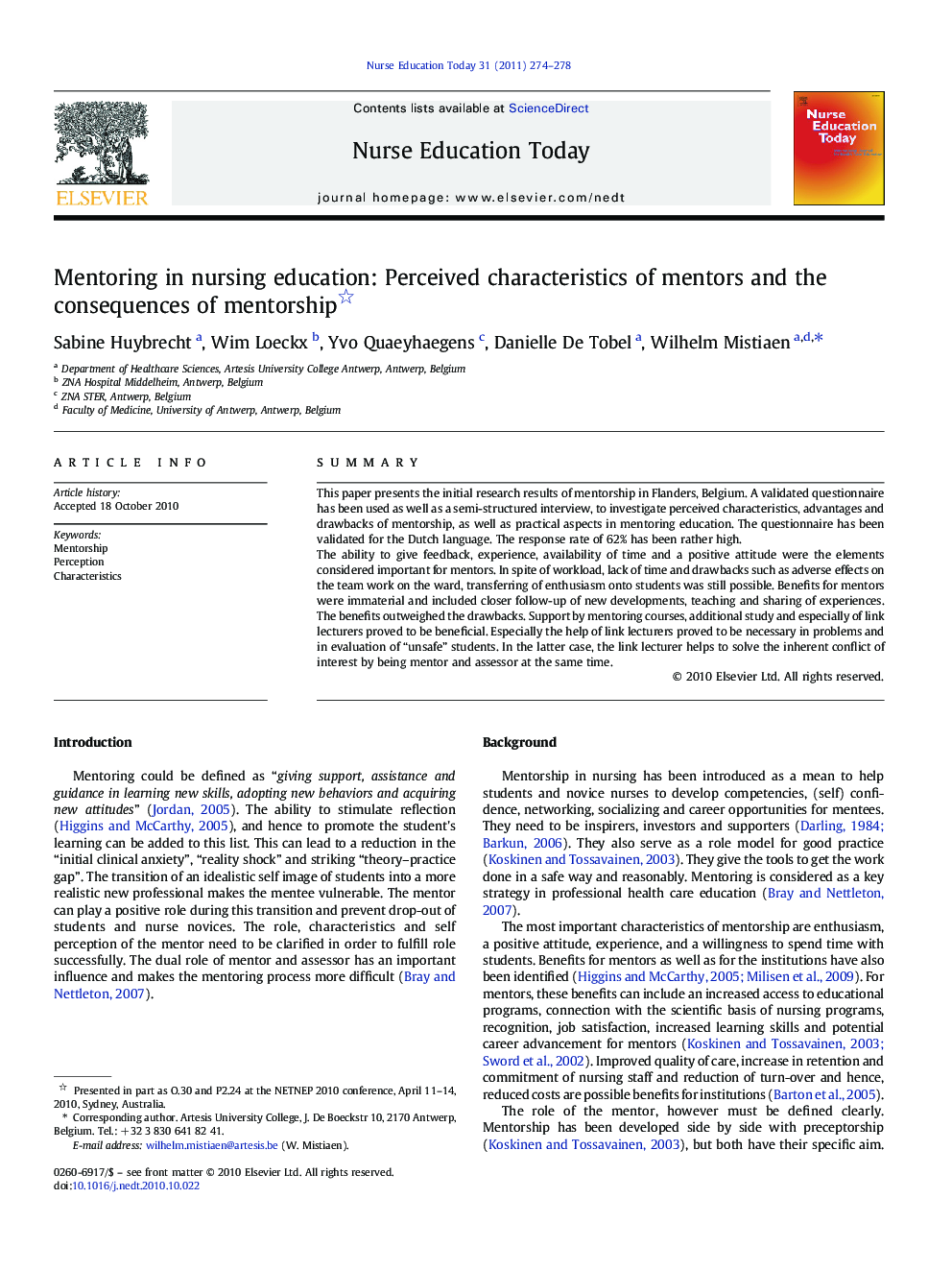| Article ID | Journal | Published Year | Pages | File Type |
|---|---|---|---|---|
| 369165 | Nurse Education Today | 2011 | 5 Pages |
SummaryThis paper presents the initial research results of mentorship in Flanders, Belgium. A validated questionnaire has been used as well as a semi-structured interview, to investigate perceived characteristics, advantages and drawbacks of mentorship, as well as practical aspects in mentoring education. The questionnaire has been validated for the Dutch language. The response rate of 62% has been rather high.The ability to give feedback, experience, availability of time and a positive attitude were the elements considered important for mentors. In spite of workload, lack of time and drawbacks such as adverse effects on the team work on the ward, transferring of enthusiasm onto students was still possible. Benefits for mentors were immaterial and included closer follow-up of new developments, teaching and sharing of experiences. The benefits outweighed the drawbacks. Support by mentoring courses, additional study and especially of link lecturers proved to be beneficial. Especially the help of link lecturers proved to be necessary in problems and in evaluation of “unsafe” students. In the latter case, the link lecturer helps to solve the inherent conflict of interest by being mentor and assessor at the same time.
